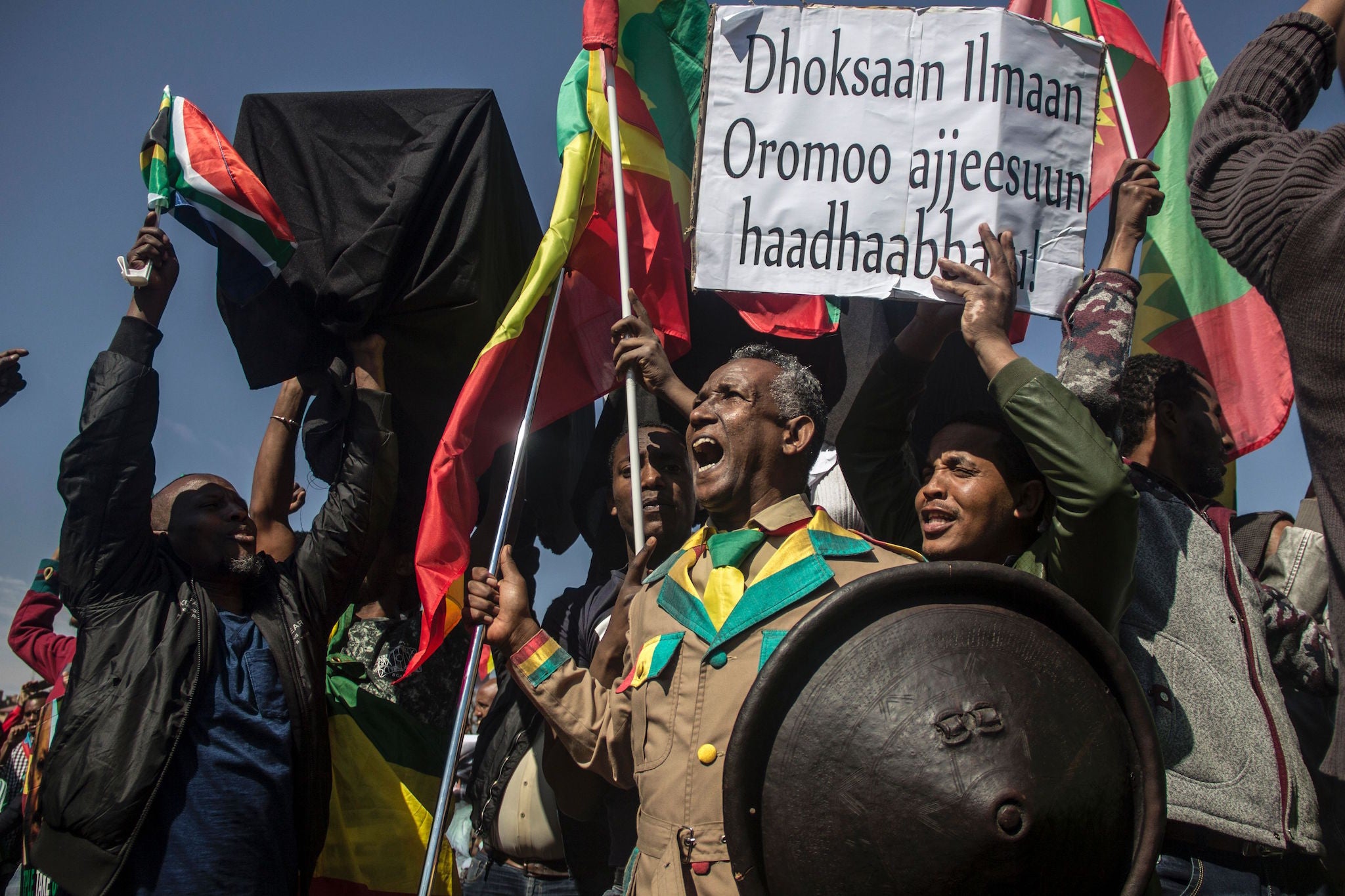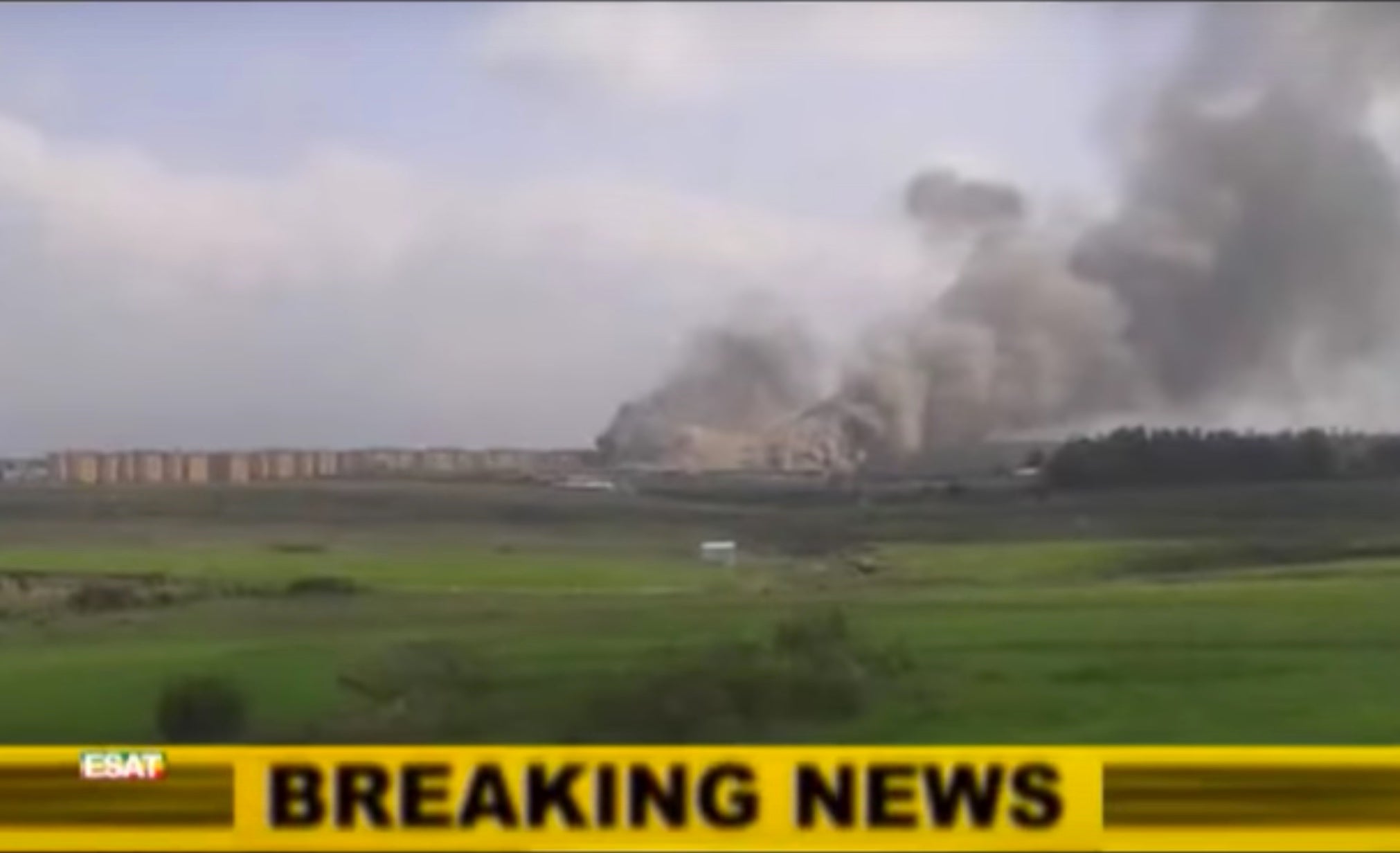Kilinto fire: Ethiopian government accused of gunning down political prisoners as they flee burning jail
Exclusive: Rights groups raise concerns over fate of political prisoners held in facility at the time

Your support helps us to tell the story
From reproductive rights to climate change to Big Tech, The Independent is on the ground when the story is developing. Whether it's investigating the financials of Elon Musk's pro-Trump PAC or producing our latest documentary, 'The A Word', which shines a light on the American women fighting for reproductive rights, we know how important it is to parse out the facts from the messaging.
At such a critical moment in US history, we need reporters on the ground. Your donation allows us to keep sending journalists to speak to both sides of the story.
The Independent is trusted by Americans across the entire political spectrum. And unlike many other quality news outlets, we choose not to lock Americans out of our reporting and analysis with paywalls. We believe quality journalism should be available to everyone, paid for by those who can afford it.
Your support makes all the difference.Rights groups have raised serious concerns over the fate of political prisoners held at a facility on the outskirts of the Ethiopian capital Addis Ababa after 23 inmates died in a huge fire at the high-security complex.
While the cause of the blaze remains unknown, the Ethiopian government has admitted at least two of the prisoners were gunned down by the authorities as they fled the burning building.
The Kilinto prison has become notorious as a holding facility for jailed members of the opposition, including members of the Oromo ethnic group.
And the Oromo Federalist Congress, a key opposition party, said there were fears for the lives of its “entire leadership”, which it said was being detained at Kilinto at the time.
Amnesty International and New York-based Human Rights Watch, which has been monitoring the deaths of the Oromo people during a government crackdown on political protests, told The Independent it was vital the authorities released the names of those killed in the incident.

The fire broke out on Saturday, just hours after a leader of the Oromo ethnic group, Tiruneh Gamta, had called for the release of “all political prisoners”.
Local media groups reported gunfire could be heard from the scene, while a TV station based outside Ethiopia broadcast footage of the fire live.
Initially, the Ethiopian government said one person was killed in the fire. But in a statement released this week via the state affiliated Fana Broadcasting Corporate, it said 21 died from “stampede, fire burns and suffocation”.

“The remaining two were killed while trying to escape from prison,” Fana reported, adding that two buildings were damaged in the blaze.
The government statement provided no details of how the fire began, only stating that the police were investigating, nor did it give the names of any of those killed.
And on Tuesday, OFC’s Assistant Deputy Chairman Mulatu Gemechu told the Reuters news agency: “Our entire leadership is being held in that place and we have no idea what has happened to them.
“The government has a responsibility to explain to the public, no less their families. We have no idea why it is taking that long.”
Some local media have questioned the official version of events. They cited unnamed witnesses saying the prisoners were shot by wardens.
Ethiopian journalist Tesfalem Waldyes, who was detained in Kilinto prison for more than a year before his release in July 2015, told The Independent it was hard to believe reports that the fire began as an attempted jailbreak.
“It is difficult for inmates to access fire,” he said. “Prisoners are not allowed to cook or smoke. And the remand facility is a highly guarded place and security cameras are everywhere.”
Though it has become known for political imprisonments, Kilinto is a facility where suspects of all sorts of crimes are held, sometimes for many years, before trial.
As such, none of its inmates have actually been convicted of their alleged crimes. Yet Tesfalem said the prison still operates under a ruthless regime, with those who complain about abusive treatment subjected to the “Kitat Bet” (punishment house) or the “dark house”, a form of isolation.
“The political prisoners mostly face harassment, intimidation, confiscation of their written materials, denial of their visitation rights and sometimes physical abuse,” he said.
It was impossible to know, until the government releases more information, how many of those killed were political prisoners. Tesfalem said all those who are arrested on political grounds are sent to the facility to await trial, and they make up a significant proportion of the 3,000 or so inmates, though not the majority.
Human Rights Watch says more than 500 people have been killed in clashes between the security forces and protesters demanding greater political freedoms in the province of Oromia.
Last week, the African Union – which is based in Addis Abiba – expressed concerns about the unrest for the first time, while on Sunday the US ambassador to the UN said her country had raised “grave concerns” about what it called the excessive use of force against protesters in Ethiopia, a long-time ally.
Felix Horne, Human Rights Watch’s senior researcher in the Horn of Africa, told The Independent: “Numerous witnesses describe hearing heavy gunfire during the fire at Kilinto, raising serious questions about the safety and wellbeing of the prisoners held there.
“Family members of those held at Kilinto also still do not know the whereabouts of their loved ones. The authorities should immediately account for the whereabouts of all prisoners to their families, and provide details about those who died during the incident.”
Amnesty International’s Fisseha Tekle said the charity was concerned about all prisoners held at the facility, including those detained on political charges.
“We call on the authorities to inform the families of prisoners of the situation of their loved ones,” Ms Tekle said. “They have the right to know whether their relatives are dead or alive.”
Join our commenting forum
Join thought-provoking conversations, follow other Independent readers and see their replies
Comments